Join the Speaking Brazilian YouTube Club to have access to the transcript of this video and many other videos.
In this lesson, you’ll learn a little bit about the history of São Paulo and see some historical places of this city.
Pátio do Colégio
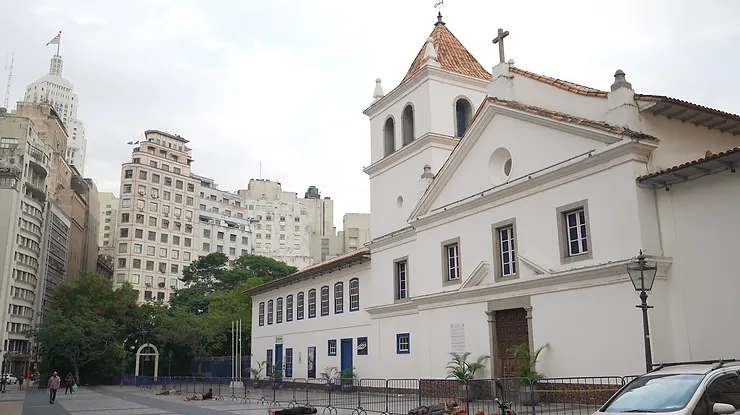
It was in Pátio do Colégio that the Jesuits founded the first Jesuit school on January 25, 1554, and around this school, the city of São Paulo was formed.
Catedral da Sé
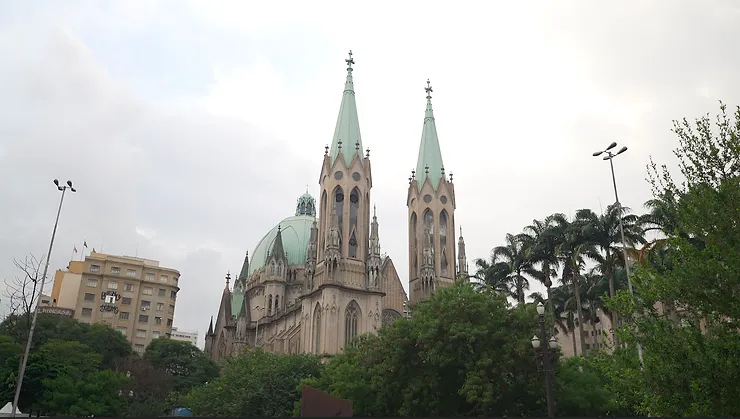
Catedral da Sé that was founded in 1954. Right in front of the Cathedral, we find Praça da Sé, which is considered the city’s central point.
Monumento às Bandeiras
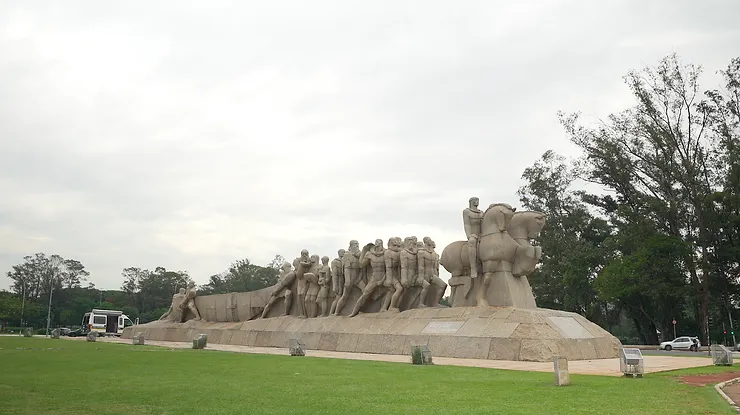
In the seventeenth century, the “bandeiras” expeditions started, which had the intention of capturing and enslaving indigenous people, expanding Brazilian territory, and searching for gold and precious stones.
The Monument to the Bandeiras, was made in honor of the bandeiras expeditions and the explorers. This monument is widely criticized because although it represents the development of São Paulo through the expeditions, it also symbolizes the enslavement and the massacre of indigenous peoples during the colonial period.
Ciclo do Café
At the beginning of the 19th century, the coffee cycle started in São Paulo. For a long time, coffee was the main economic base of São Paulo and Brazil.
Initially, coffee production was made with slave labor. With the abolition of slavery in the 19th century, landowners started to employ immigrants, especially from Europe and Japan.
Estação da Luz
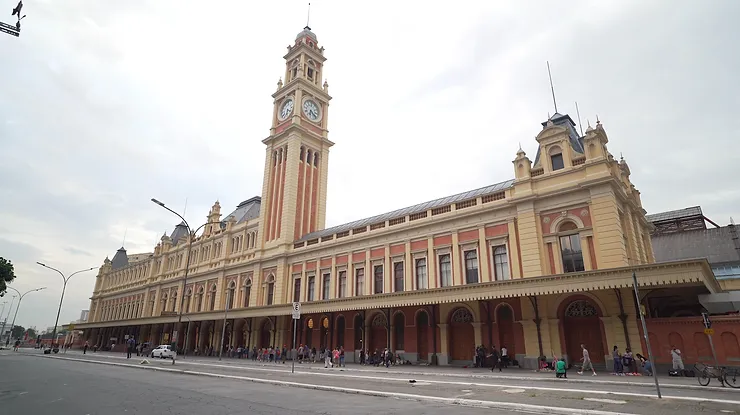
To facilitate the transportation of coffee, in 1867 the São Paulo Railway was created, the first railway in São Paulo. Estação da Luz is one of the main railway stations in São Paulo, located in the center of the city.
Casa das Rosas
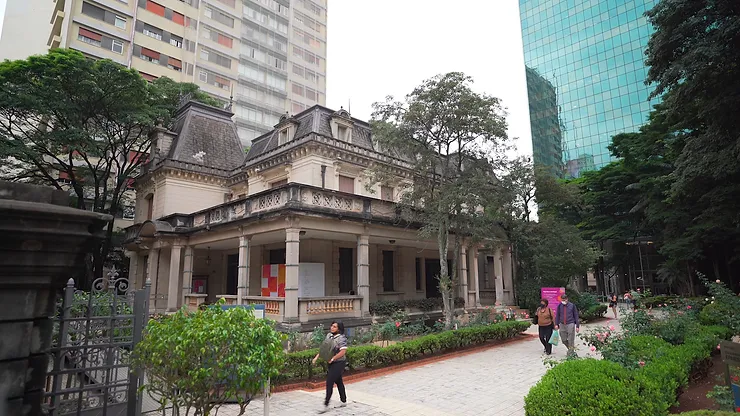
Avenida Paulista was opened in 1891. It was on this avenue that many great coffee producers built their mansions. An example of a mansion from this time is the Casa das Rosas (House of Roses). Casa das Rosas was built in 1935. Today, Casa das Rosas is a cultural space that hosts many events and art exhibitions.
Industries
In addition to the large production of coffee, in the mid-20th century, São Paulo also received many industries, especially of automobiles, which encouraged the migration of Brazilians from other regions to São Paulo, especially from the Northeast. This great movement of migration to São Paulo contributed to the growth and development of the city.
That’s it! I hope you enjoyed learning a little about the history of São Paulo and its historical places.
What did you like most about this lesson? Leave a comment below with your answer.
See you next time!


